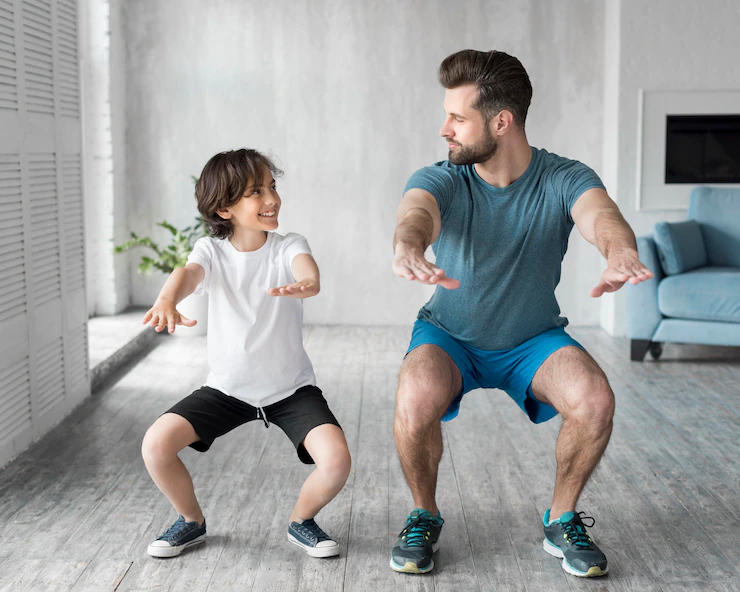Introduction
In today’s society, body image issues and negative self-perception are prevalent, affecting individuals of all ages and genders. South African fathers have a crucial role in promoting a healthy body image and fostering self-acceptance in their children. By cultivating a positive environment, modeling self-acceptance, and encouraging a balanced approach to physical well-being, fathers can empower their children to embrace their bodies and develop a positive self-image. In this article, we will explore the importance of fathers’ role in nurturing healthy body image, practical strategies for promoting self-acceptance, and the positive impact it can have on their children’s well-being.
The Influence of Fathers on Body Image
- Modeling Behavior: Fathers serve as powerful role models for their children, and their attitudes and behaviors towards their own bodies greatly impact how children perceive their own. Positive self-acceptance and body confidence demonstrated by fathers can significantly influence their children’s body image and self-esteem.
- Emotional Support: Fathers who provide emotional support and engage in open conversations about body image create a safe space for their children to express their thoughts and concerns. By validating their feelings and offering reassurance, fathers can counteract negative societal messages and promote self-acceptance.
- Reinforcing Healthy Habits: Fathers who prioritize a balanced approach to physical well-being can guide their children in developing healthy habits. Emphasizing the importance of overall health, rather than solely focusing on appearance, helps children understand that their bodies are valuable regardless of their size or shape.
Practical Strategies for Promoting Self-Acceptance
- Encourage Open Dialogue: Create an open and non-judgmental environment for discussions about body image. Initiate conversations with your children, actively listen to their concerns, and provide guidance and support.
- Promote Positive Self-Talk: Teach children the importance of positive self-talk and help them develop a healthy inner dialogue. Encourage them to focus on their strengths, talents, and accomplishments rather than solely on physical appearance.
- Challenge Media Messages: Help children develop media literacy skills by discussing unrealistic beauty standards portrayed in the media. Encourage critical thinking and teach them to question and analyze the messages they encounter.
- Focus on Health and Well-being: Shift the emphasis from appearance to overall health and well-being. Encourage children to engage in physical activities they enjoy, promote nutritious eating habits, and emphasize the importance of self-care for both their physical and mental well-being.
- Emphasize Individuality: Celebrate and embrace individual differences and uniqueness. Teach children that beauty comes in all shapes, sizes, and colors, and that their worth is not determined by societal standards.
- Compliment Beyond Appearance: Offer praise and compliments that extend beyond physical appearance. Recognize and acknowledge their achievements, character strengths, and personal qualities, reinforcing the idea that their value goes beyond looks.
The Positive Impact on Well-being
- Improved Self-esteem: Nurturing a healthy body image promotes positive self-esteem. Children who accept and appreciate their bodies are more likely to develop a strong sense of self-worth and engage in positive self-care behaviors.
- Resilience to External Pressures: Children with a positive body image are better equipped to resist societal pressures and unrealistic beauty standards. They are more likely to develop resilience and a strong sense of self, unaffected by external judgments.
- Positive Relationships: Healthy body image contributes to healthier relationships. When children accept themselves and their bodies, they can form more meaningful connections based on mutual respect and acceptance.
- Mental Well-being: A positive body image is linked to better mental well-being. Children who embrace their bodies are more likely to experience reduced stress, anxiety, and depression related to body image concerns.
Conclusion
South African fathers play a pivotal role in nurturing healthy body image and promoting self-acceptance in their children. By fostering a positive environment, modeling self-acceptance, and encouraging a holistic approach to well-being, fathers can empower their children to develop a positive relationship with their bodies. Let us encourage fathers to prioritize the mental and emotional well-being of their children, and together, we can create a society where self-acceptance and positive body image thrive.










